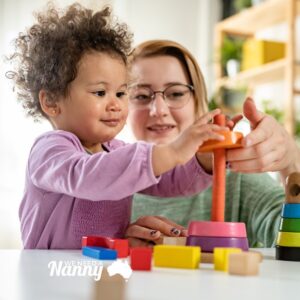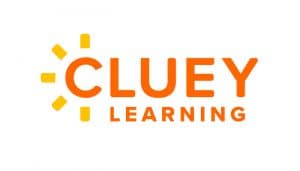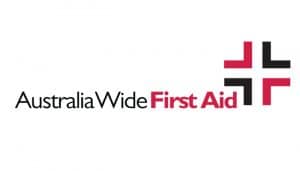One of the most popular programs that may help you become a more effective parent is the PET program.
Parent Effectiveness Training is an excellent resource for parents and nannies to develop their parenting skills. It is a remarkable guideline to help you raise children into responsible and happy adults.
What is Parent Effectiveness Training (PET)
Parent Effectiveness training or PET began over 40 years ago as a parent advice book. It is a parent training program. The program provides step-by-step advice on communicating with children and teaching children good values.
Though it began in 1962 the program is constantly revised and updated, and it remains an informative guide for all parents and nannies.
What can You Learn from the Program?
Among a few other topics to address, the PET program teaches four main skills;
- How to become an authoritative parent, rather than a permissive parent.
- How to positively communicate with children.
- How to teach your children to solve problems, and become responsible persons.
- How to resolve conflict, and teach children to resolve conflict.
You are The Parent
Before getting started, it’s important for parents and nannies to appreciate this.
You are not a “god”, a superhero, or immortal. You are human too. You are also not your child’s friend, brother, sister, or any other relation. You are their parent, their provider, and guidance first and foremost.
Some parents have a friendship relationship with their children. This does build a strong bond, though it is vital to understand your role as a parent.
Parenting is about having a healthy and respected relationship with your child. Teaching children accountability and responsibility, by being a good role model. Children need to understand that parents are humans too and make mistakes. That is why parents have the authority to teach children because they have learned through their mistakes.
What Makes P.E.T Training so Different
Most parenting guides or tips teach “behavioural strategies”. Changing children’s behaviour through cause and consequence. This entails:
- Trying to force children to comply.
- Making the parent the centre of attention.
- Relying solely on rewards and punishment for good and bad behaviour.
- Using external forms of control and discipline.
- Teaching children to focus only on themselves for reward and avoidance of punishment.
- Not teaching children to solve their problems.
In essence, looking at the different types of parenting. It leans more towards an Authoritarian or Autocratic parenting style.
Using the P.E.T. program, on the other hand, teaches parents Authoritative parenting. The basis is more on a mutual relationship between the parent and the child, towards a common goal.
The program relies on the following:
- Aiming to teach children mutual respect, rather than just respect for authority.
- It is parent and child-centred, rather than just focusing on the child.
- The child becomes involved in solving problems, and not just accepting solutions.
- Using internal forms of discipline and control, Inner discipline rather than external.
- Children learn to consider others and themselves as part of a consequence.
- Children become involved with their parents in problem-solving and conflict resolution.
- There is a more democratic relationship between parents and children, rather than dictatorship.
How Will Parent Effectiveness Training Help You as a Parent Or Nanny
Parent Effectiveness Training is one of the most current guidelines for parents and nannies. Tried and trusted by many parents, it helps to encourage children and parents in many ways:
Helping You to See Your Child as an Individual
There is such a mistaken cliché of seeing and attributing the intent behind a child’s behaviour. Parents tend to take kids’ actions and reactions personally. Children are not deliberate or inherently “bad”, naughty, or disrespectful.
With the PET guide parents can see their children as separate individuals. An individual needs and has problems, rather than being problematic. Parents become proactive and less reactive, and understanding your child as a person on their own improves confidence.
Though a child has many similar attributes to their parents, they are their own person. Many parents take the saying “following in my footsteps” the wrong way. Yes, essentially you want your child to have the same good values and morals. However, a child needs to establish their own values, morals, and identity in time.
Rather than trying to raise a mini version of yourself, be a role model. Raise a child that will follow your example, in their way. A child must be able to express themselves positively and healthily.
It Empowers Parents and Children
All in all children and parents will enjoy each other’s company. The relationship between the parent and child will improve and generally become happier and more relaxed.
This is because it promotes a warm and mutually respectful relationship between children and parents.
The Program Teaches Preventative Effects
Teaching children social and emotional intelligence, and communication, will help them grow as adults.
As parents we must teach, and MODEL, respectful and warm relationships.
Parent-child relationships are the most important factor in facilitating a child’s well-being.
How do You Become an Effective Parent or Nanny?
It’s important to consider how your lifestyle as a family can incorporate skills and strategies to build a strong foundation for children.
There are five main topics addressed in the Effective Parent Training course, to expand on:
- Communication Between Parents and Children
- Teaching Children Responsibility
- Avoiding Permissive Parenting
- Teaching Children Problem Solving Skills
- Conflict Resolution
Communicating Positively
One of the most vital aspects of any relationship is communication. A parent-child relationship will flourish with the right communication strategies.
Why is communication so important? Because children desperately need to feel heard to feel validation and security. From infancy, a child’s only means of communicating their needs is through sound. Whether crying for food or attention as a baby or shouting and yelling as a teenager. Communication is a way of expressing your needs.
In the Course there are three methods to communicate positively with your child:
Active Listening
First and foremost, listen to your child. It helps to bend down, or sit down to their level and listen. Focus only on what the child is telling you, and avoid distractions. Secondly ask your child, whether what you understood, is what they are trying to say.
Talk So That Your Child Listens
Even when you become infuriated, always talk in a calm and soft tone of voice. Remain calm and in a simple form explain your feelings about the subject. Address the needs or issues at hand and resolve them to meet everyone’s needs. There is a good example to ensure your child understood what you said. Ask them to repeat what you have said, or to tell you what they understood from your words.
“Can We Just Talk”
It is crucial to take time every day and have a conversation with your child. Ask them about their day, what interests them, and so forth. Then again, listen actively without any distractions. In turn, you could reciprocate by giving some details on your day, or experiences. Try to find common ground where you can empathise, or familiarise yourself with your child’s views.
These are only a few small tips that will make a huge difference in communicating with your child,
Teaching Responsibility
Every adult in life has certain responsibilities to adhere to. If they do not, there are usually consequences.
Thus rather than teaching children compliance, encourage their emotional responsibility. Teach them to consider their needs as well as those of others in the group.
As adults, they will not always have an immediate reward or punishment for their behaviour. However, they must rather stem their behaviour from mutual respect and consideration. In this way, meeting the needs of the child and others involved.
In effect, children need to be responsible for what they own. Placing value on what they have is a vital skill in responsibility training.
Solving Of Problems
Problem-solving is an essential skill that children learn from a very young age. Many toddler toys have a design specifically to improve problem-solving skills in children.
To give your child the best chance in life is to equip them with problem-solving skills. The skill is quite easy to teach to a child or group. Rather than giving a child the solution, guide them towards the solution. Give them options and allow them to choose for themselves which is the best solution.
In some cases, give them the freedom to find their solution through trial and error. It’s important to remember that your ways and methods of solving problems may not be the same as your child’s.
Soon enough a child will learn easier methods to get the same result. However, it empowers them to find their own solutions to a problem, especially when their solution succeeds.
“We Need a Nanny”
Hiring a nanny by no means takes away your effectiveness as a parent.
In fact, it will enrich it!
A nanny will support your family and your children in so many wonderful ways.
For a fulfilling engagement, it’s best for parents and nannies to sit down and discuss their methods for raising children, and ensure there is alignment.
What is the Role of a Nanny
Catering to Children’s Emotional and Physiological Needs.
Much of the parental training falls in place with your role as a nanny. Thus, in effect, you are an extension of the parent, teaching the same goals.
This entails:
- Communicating with children and guiding them to solve problems.
- Playing educational games and reading books.
- Playing a role in conflict resolution and teaching good behaviour.
- Spending time with children and having a conversation with them.
To summarise the parent Effectiveness training program..
Communicating With Your Children
Take time to listen and talk to your children. Use simple explanations and a moderate tone of voice to express your feelings and cater to theirs.
Teaching Children Responsibility
Teach your children to become responsible for themselves, and participate in solving their problems. Similarly recognise more effective ways to resolve conflict with due respect.
Understanding Everyone’s Needs
Teaching children to talk about their needs in a healthy manner, and to respect others’ needs. Ideally, talk to your child and respect what they are trying to achieve. Understanding their needs and feelings will help to guide their behaviour.
Using a method of positive parenting. Show children love, warmth and kindness. It is a method of guiding a child to act in a certain manner, by encouraging and teaching them.
Regulating behaviour through supervision, discipline and appropriate limits
They are methods of making kids feel safe, seen, soothed, supported and challenged.










